Table of Contents
ToggleIn a world buzzing with TikTok dances and endless memes, reading might seem like a relic from the past. But let’s face it: without literacy, navigating life is like trying to find Wi-Fi in the middle of a desert. Reading isn’t just a pastime; it’s the key to unlocking knowledge, creativity, and even a bit of sanity in an otherwise chaotic universe.
Importance Of Reading And Literacy
Reading and literacy play crucial roles in personal development and societal engagement. These skills influence various aspects of life, making them essential for individuals and communities alike.
Cognitive Benefits
Cognitive development relies heavily on reading. Improved comprehension skills result from regularly engaging with texts. Enhanced vocabulary often stems from exposure to diverse literature. Critical thinking abilities also increase, as readers analyze plotlines and characters. According to the National Assessment of Educational Progress, proficient readers score higher on assessments than their less literate peers. Memory retention improves too, given that reading encourages mental visualization. Lifelong learners find reading helps maintain cognitive agility, protecting against age-related decline.
Emotional Benefits
Emotional well-being significantly improves with reading. Stories offer an escape, providing temporary relief from daily stressors. Increased empathy often develops through character exploration, allowing readers to understand diverse perspectives. Reading also fosters a sense of belonging, as individuals connect with narratives that resonate with their own experiences. Statistics show that children who read regularly exhibit better emotional regulation than those who don’t. Engagement with books or articles can become a comforting ritual, creating a safe space for mindfulness and reflection. Overall, reading nurtures emotional resilience, empowering individuals to navigate life’s challenges.
Components Of Literacy

Literacy encompasses several key components that contribute to effective reading skills.
Phonemic Awareness
Phonemic awareness involves recognizing and manipulating sounds in spoken words. It is the ability to hear, identify, and work with the individual sounds, or phonemes, in a word. Mastering phonemic awareness lays the foundation for reading and spelling. Children who develop strong phonemic skills often find it easier to decode words and understand text. Research shows that explicit instruction in phonemic awareness significantly boosts reading success. Phonemic awareness activities, such as rhyming and sound blending, foster these skills. Engaging with these practices early on provides children with essential tools for literacy growth.
Vocabulary Development
Vocabulary development plays a critical role in reading comprehension. Individuals who possess a robust vocabulary can better understand and engage with texts. Diverse exposure to words enhances communication and expression capabilities. Frequent reading introduces new words, promoting vocabulary expansion. Research indicates that students who read regularly tend to have larger vocabularies and perform better in academic settings. Strategies like using context clues and engaging in discussions around new words can further enrich vocabulary. Developing a rich vocabulary ultimately supports deeper understanding and critical thinking in both reading and writing.
Strategies To Promote Reading And Literacy
Promoting reading and literacy requires intentional strategies. Various methods engage individuals and foster lifelong reading habits.
Encouraging Early Reading Habits
Creating a print-rich environment promotes early reading. Libraries and bookstores offer diverse literature for children. Parents and caregivers play a key role by reading aloud to children. Expressive reading captures children’s attention and sparks imagination. Incorporating storytime in daily routines nurtures a love for books. Engaging children in discussions about stories enhances comprehension skills. Introducing a variety of genres keeps reading exciting and age-appropriate. Regular trips to the library can instill a sense of adventure in exploring new texts. Cultivating early reading habits creates a solid foundation for lifelong literacy.
Using Technology Effectively
Integrating technology enhances reading and literacy experiences. E-readers provide access to countless titles and resources. Educational apps offer interactive opportunities for learning, such as phonics and vocabulary games. Audiobooks support diverse learning needs and make stories accessible. Combining traditional reading with digital content allows for a balanced approach. Online platforms encourage children to connect with authors and participate in reading challenges. Social media can promote book discussions and encourage community reading initiatives. Technology, when used thoughtfully, can enrich reading experiences and foster engagement in literacy development.
Challenges To Reading And Literacy
Reading and literacy encounter significant challenges that hinder progress and engagement. Various factors contribute to these obstacles.
Socioeconomic Factors
Socioeconomic status plays a crucial role in literacy development. Families with lower income often lack access to educational resources and experiences essential for fostering reading skills. Inadequate funding for schools in low-income areas leads to insufficient materials and qualified personnel, limiting students’ learning opportunities. Research indicates that children from affluent families are exposed to more diverse reading materials, promoting better literacy outcomes. Disparities in education and income link directly to literacy levels, creating ongoing cycles of disadvantage.
Access To Resources
Accessing reading materials can determine literacy success. Communities with limited libraries or bookstores struggle to provide necessary resources. Digital divides also affect access; children without reliable internet face barriers in utilizing educational apps and online content. Many low-income households cannot afford books, impacting their ability to create print-rich environments at home. According to the Institute of Museum and Library Services, school libraries significantly improve literacy rates when properly funded. Ensuring equitable access to reading resources remains vital for enhancing literacy skills and fostering lifelong reading habits.
Reading and literacy are foundational elements that shape individual lives and communities. By fostering a love for reading and ensuring access to resources, society can empower future generations. The benefits of literacy extend beyond academic success; they enhance emotional well-being and critical thinking skills.
Addressing the challenges faced by those in low-income areas is essential for creating equitable opportunities. As technology evolves, it offers innovative ways to engage readers of all ages. Embracing a multi-faceted approach to literacy can lead to a brighter future where everyone has the tools to navigate the complexities of life effectively.







